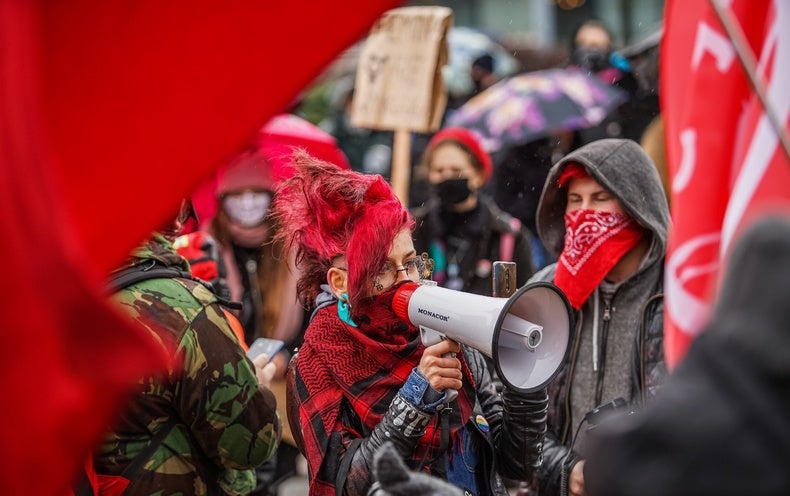Around us, we see people fighting for the benefit of people like them—women are calling for abortion rights in Poland; Black Lives Matter protesters fighting to end police brutality against people of color in the United States; LGBT people calling for all Marriage equality in the world. But what makes these people so concerned about these issues instead of caring about others related to their team?
One possible answer is obvious: When our team members suffer, we will speak out.People tend to think and behave in ways that benefit their group; this is called solidarity, or Group preference, Depends on how you feel.Even when Group division is almost meaningless. For example, we give preferential treatment to people who like the paintings we draw—or, according to this small Classroom experiment, Agree whether we Hot dogs are sandwiches. Social categories such as gender and race are more meaningful than reaching agreement on the sandwich issue. If people approve of social changes that are most beneficial to their social group, that would make sense.
Of course, when a social movement raises a question, the question almost always affects members of the social movement disproportionately. Feminists fight for women’s votes, not for disability benefits for veterans. But there are many combinations of groups and questions missing.Blacks and Hispanics are a lot of more exposed arrive Air pollution More than white people, but this has not caused black lung problems.There is Not LGBT #MeToo Waves, even gay and bisexual Americans Three times more likely More sexually assaulted than heterosexuals.Conversely, the group does not if only Fight for “own”. Gays and lesbians support miners Just a colorful example.
So, if it is in the interest of the group, does the group mainly deal with problems? Or are they doing this for other reasons?To answer this question, I invited nearly 500 men and women to participate in a Online experimentSome randomly selected participants were given a message linking the problem to their social group. For example, some male participants learned this fact: American men are twice as likely to die in a car accident as womenSome female interviewees learned that women are 30% more likely to be poor. These special problems are the result of my long-term search for problems that are really biased towards one gender. But this information must be news to participants. As a result, combinations like women and sexual harassment are eliminated.
The results of the experiment are puzzling. Knowing this information did not change the opinions of the participants. They did not feel more worried about this issue. They did not rise a place in the ranking of important social issues. They will not support more government spending on this issue than before. I repeated this experiment with 700 black, Latino, and white participants. No. I recruited LGBT participants. No. Perhaps this effect only exists for those who truly identify with this group and regard it as a core part of themselves? no. Just knowing that a problem will affect your team does not make you care.
Of course, there are social groups that care about issues everywhere in the world. How do we compare it with the experimental results? It may be that the problem must be related to the core identity of the team in some way. This applies to topics such as same-sex marriage or the prohibition of Muslim hijabs. It is also possible that key figures need to unite to support this issue, as Martin Luther King did for civil rights.Maybe it helps to have one Common enemyOr maybe people need to feel that caring about this issue is the norm within the team.We already know that group norms affect political behavior: for example, black Americans voted for Democrats partly because they felt social pressure It is up to their community to do so.
Finally, maybe statistics are not enough to make people care. We know those stories, Because of their emotional impact, often More powerful Than change the number of opinions. Maybe you need to know a member of a group that was hurt: a woman who was harassed, a black man who was hurt by the police.Political scientists are increasingly discovering how political opinions are rooted in mood with social relationship; they are Irrational reaction To the world.
I care about #MeToo movement, which feels logical because I am a female.but Far from all American women agree with me.Ten years later, maybe my niece will wonder why I don’t focus on the epidemic of depression-a fatal disease that affects depression Women are twice as much as menIn the end, the list of issues that I care about “as a woman” is random, the product of many experiences, examples, and exchanges in my life.
And yours?
